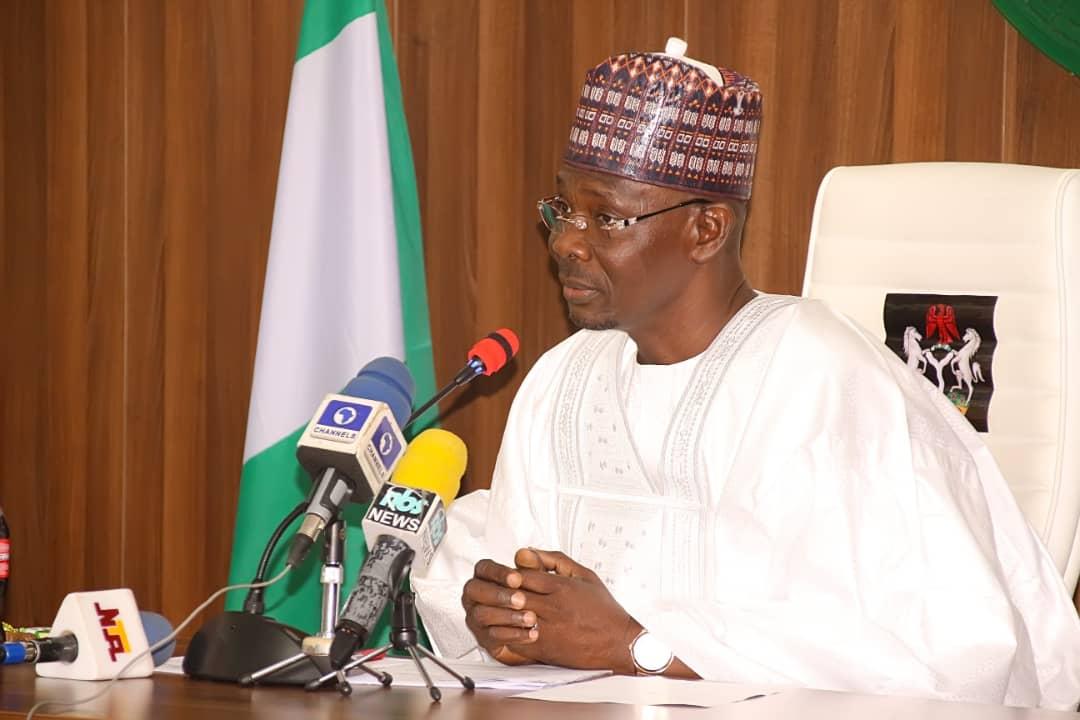Nasarawa killings and the muted response of the government
Last week, a military airstrike took the lives of 40 innocent civilians – all legitimate Nigerians. It is beginning to look like killing innocent Fulani civilians is a part of the Nigerian military airstrike operation. I say so because the government has been silent about it, and it is not the first time. Every citizen […]

Last week, a military airstrike took the lives of 40 innocent civilians – all legitimate Nigerians. It is beginning to look like killing innocent Fulani civilians is a part of the Nigerian military airstrike operation. I say so because the government has been silent about it, and it is not the first time.
Every citizen and resident of the country has the right to be protected by the law regardless of religion, ethnicity or race. The constitution is clear about this right. Likewise, civilians are to be protected under International Humanitarian Law from the angle of fighting terror.
The deceased Fulani were travelling from Makurdi after paying a fine of N29 million to release their 1,250 animals that had been confiscated in Benue State. The imposed fine is one of the many penalties by Ortom’s anti-open grazing law – a law encouraging ethnic profiling of Fulani people.
They were killed in Rukubi, a village on the border between Nasarawa and Benue states, a region known for ethnic and religious violence. Losing such a humongous amount to Benue State due to ethnic profiling is bad enough. Losing one life is horrendous. It is incomprehensible to imagine the loss of 40 innocent lives in one community.
- NIGERIA DAILY: TikTok, A trend Or Business Opportunity Hub
- ‘2023 general elections, turning point for Nigeria’
The Nigerian Airforce reported that they were hit by a plane that was hunting down some local insurgents.
On record, military airstrikes have killed 260 innocent Nigerians erroneously on 12 occasions since 2014. The killings happened 12 times under the Buhari administration.
Last year alone, innocent Fulani herders were bombed erroneously with their cattle across Nasarawa, Benue, and Taraba.
The Nigerian military keeps attributing the bombardment to a lack of sufficient labelling of the area. Many will find it hard to believe that the military lacks proper intelligence in this fight against terrorism.
The military is exposed to the latest technology and could possess all the technical support from international communities. Poor intelligence does not win the war on terror and other criminal groups. Rather, we will continue to have the military killing people unintentionally.
Nigeria and its allies are not ignorant of the International Humanitarian Law that specifies the limits in armed conflicts using four principles.
First: People who are not currently engaged in hostilities must be respected, safeguarded, and treated with humanity. They must receive the proper attention without any prejudice.
Second: captured fighters and others whose freedom has been constrained must be handled humanely. They should be safeguarded from all forms of violence, including torture, and if brought to trial, they have the right to the essential safeguards of a proper legal system.
Third: the freedom of armed conflict participants to choose techniques or means of battle is not boundless. No needless harm or suffering should be caused.
Lastly: To protect the civilian population, the military must always distinguish between civilians and civilian objects on the one hand and military targets on the other. Military strikes should not be directed at the civilian population, individuals, or civilian goods.
In a nutshell, International Humanitarian Law asks the military to fight a war by not attacking civilians. They should only attack combatants only by legal means. They should treat persons in their power humanely and protect all victims.
Therefore, going against International Humanitarian Law is a crime against humanity that must be condemned domestically and internationally. The latest deaths are war crimes.
This government’s silence may condone innocent civilians’ killings and ethnic profiling. These atrocities will continue so long as such behaviour persists.
The refusal to show empathy is another signal to citizens that the issue is not taken seriously. Specifically, Buhari did not give condolence to the victims’ families for this horrific murder. He may claim to be too busy to send messages to the bereaved families, but he was not too busy to attend a political gathering in Katsina State.
But this is not the first time he has done this. Last January, the President was silent when scores of people were killed in Zamfara while visiting Bisi Akande’s book launch. The deceased’s loved ones are still traumatised and have not forgotten. Let’s be clear, the deceased have the same rights as all other citizens, and they want justice carried out. Citizens would side with the government if it showed compassion and empathy towards them.
In an election season, the only way to show a lack of disapproval is to vote against the government’s wishes. Buhari has clearly announced his support for Tinubu, the APC flagbearer, who plans to maintain what this administration is doing if elected. Given Buhari administration has formed the habit of maintaining their silence whenever killings occur, the aggrieved groups will insinuate that the behaviour of silence will continue under the next APC.
Without politicising the crisis, the government must address these persistent erroneous killings by military airstrikes, including those involved.
The National Assembly must be bold enough to look into the military to ensure they follow the rules of engagement. The military chiefs should declare that amateur errors will be avoided in the future by using proper intelligence as they have the funding to do so.
